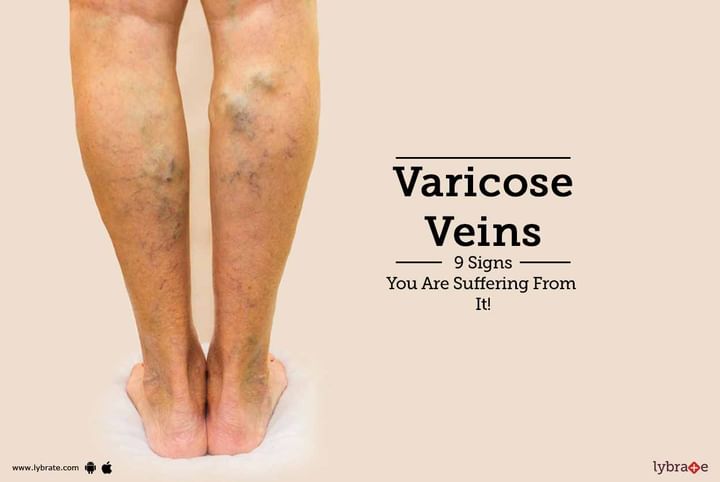Varicose Veins - 9 Signs You Are Suffering From It!
The veins are a type of blood vessels which collect impure blood from all parts of the body and return it to the heart. The veins in the legs especially are quite thick and need to exert extra pressure to pump blood against gravity towards the heart. In quite a few people, these veins could be engorged, swollen, and twisted, which are known medically as varicose veins.
Causes:
Defective or damaged valves in the blood vessels. Normally, the blood flow is controlled by valves which ensure blood flows in the desirable direction. When these valves are not able to control the flow of blood, then varicose veins can return
Thin vein walls can lead to improper flow of blood, resulting in varicose veins
Risk factors:
- Prolonged standing
- Obesity
- Pregnancy
- Smoking
- Surgery in the leg, which could have hampered the values or veins
- Age, as the elasticity of the vessels, reduces with age and can impede normal blood flow
- Family history
Symptoms:
- Blue, swollen veins in the legs which are thin and ropy
- Pain with prolonged standing followed by pain and tenderness
- Itching and heaviness in the legs
- Cramping in the night
- Blood clots in the superficial vessels
- Severe varicose veins can cause bleeding
- The area around the leg feels firm and/or hard
- There could be skin changes like scaling, dryness, and color changes
- Increased propensity to bleed in the affected leg
Diagnosis:
- Usually easily diagnosed in clinical examination
- The above-listed features are very characteristic and help in identifying them
- Further testing may be done to identify the problematic valve, usually using a tourniquet
- Doppler ultrasound, scanning, and MRI may be required to confirm diagnosis, which are quite rarely used
Prevention/Treatment:
- Keep the legs elevated as much as possible. During working hours, take short breaks where you are able to elevate the legs
- Even in prolonged journeys, try to take a break which will improve circulation
- Quit smoking
- Compression stocking (Ted hose or Jobst stocking) can be used to improve circulation. They also help in controlling pain and are very commonly recommended to treat varicose veins
- Avoiding alcohol, which leads to venous dilation
- Weight management, as being overweight is a big risk factor
- Do not cross legs when sitting, as it puts constant pressure on the valves
- Avoid tight clothing which can put pressure on the veins and/or valves
- Keep a regular exercise regimen like walking to improve blood flow
- Surgical treatment options include sclerotherapy, laser treatment, and stripping off the vein, but are not usually required.
In case you have a concern or query you can always consult an expert & get answers to your questions!



+1.svg)
